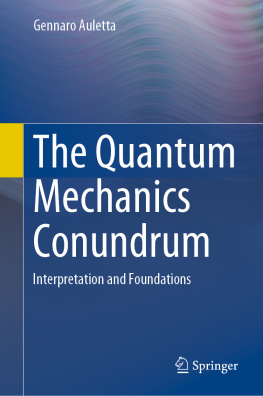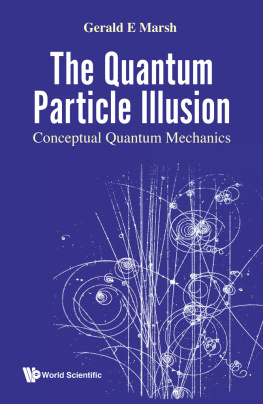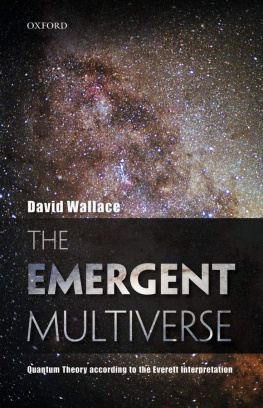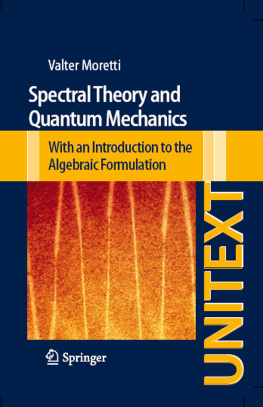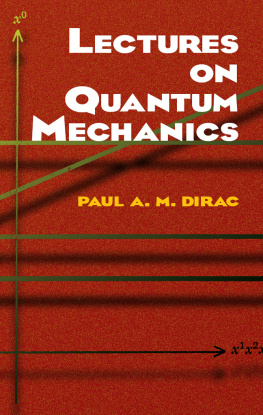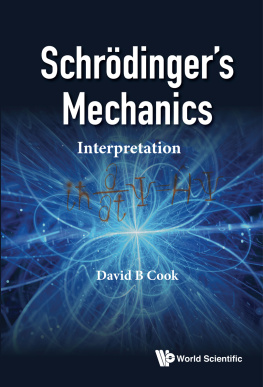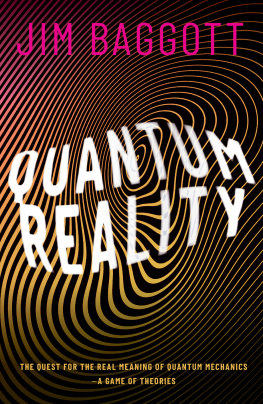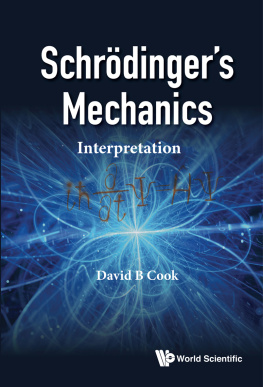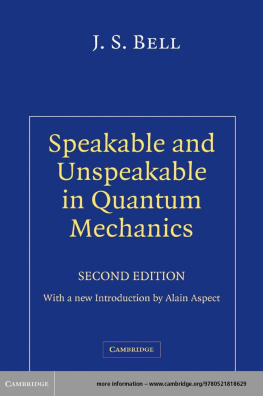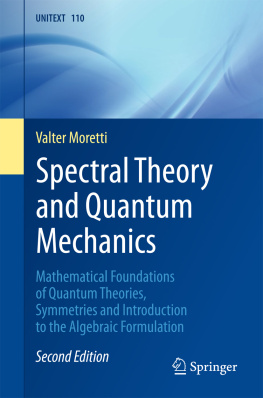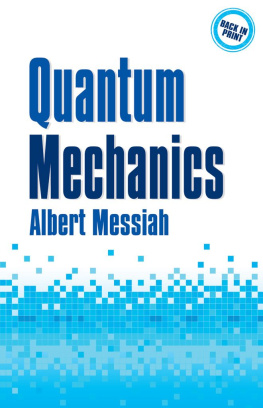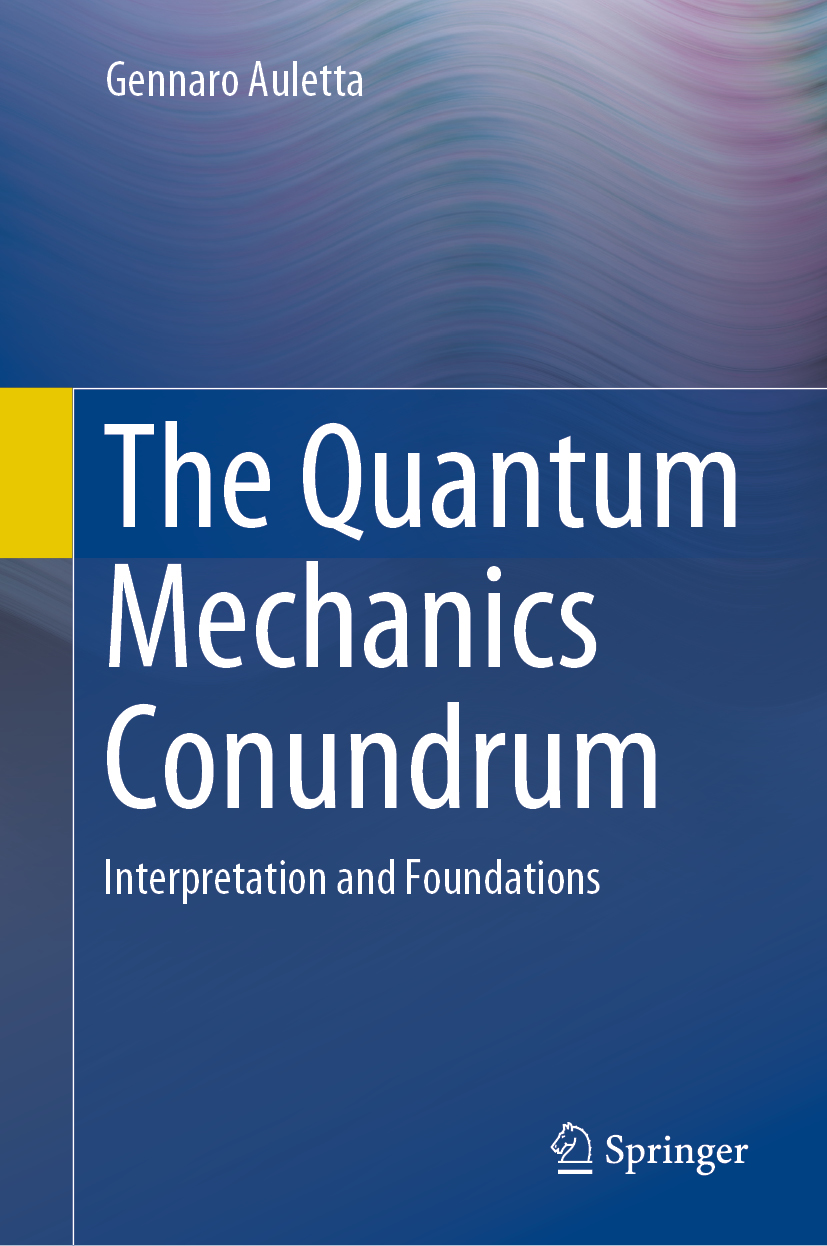And that was why metaphysics and science were
such courageous enterprises, such startling inventions,
bigger than the wheel, bigger than agriculture,
human artifacts set right against the grain of human nature.
Disinterested truth.
Ian McEwan, Enduring Love
The starting point of this book was my tutorship for a doctoral dissertation in the year 2014 at the Pontifical Gregorian University in Rome. The now Ph.D. Father Lluc Torcal wrote a thesis titled In Search of an Ontology that Underlies Quantum Mechanics: Which Vision of the Physical World Could We Get from Quantum Mechanics? It was essentially a philosophical assessment of the main problems and solutions in interpreting quantum theory with a look at the proposals that I have developed in my own research across more than 20 years starting from the publication of Foundations and Interpretation of Quantum Mechanics: A CriticalHistorical Analysis of the Problems and a Synthesis of the Results , published in 2000 by World Scientific. At that time, I spent a summer in the monastery of Poblet working together with Father Torcal. Since this gave us the opportunity for examining many crucial points in interpreting quantum mechanics, after the discussion of the mentioned dissertation, both of us envisaged the project of making a book on this subject. However, when I started to work on it, I became soon aware that the issue at the stake went much further than a simple philosophical assessment. Moreover, Father Torcal, due to his duties in the Cistercian order, could not follow this project. Nevertheless, the current structure of the first three chapters partly mirrors that of the dissertation.
Gennaro Auletta
Rome, Italy
Introduction
As well-known, it was the epistemologist K. Popper to speak of a schism in physics determined by quantum theory. Retrospectively it seems opportune to ask: does the schism consist of the introduction of the subjectivity in the mid of physics, as Popper (following Einstein) seems inclined to think, or in accepting that events occur randomly without any cause or even ground as stressed by Bohr? Or is it rooted in the uncontrolled interactions of the experimenter with quantum systems as suggested by the young Heisenberg? Or even does it consist in the acceptance of non-local correlations as pointed out by Schrdinger? The answer may vary according to personal taste. These aspects essentially deal with the following problems (keeping the same order): reality, causality, measurement, status of formalism. They represent a challenge to our rational understanding of Nature. They are all fundamental issues, but I am inclined to think that the crucial problem that is at the root of all these puzzles is the notion of reality. So, we may rephrase Poppers definition of the schism in physics as the possible break down of the notion of reality as such.
It is thus not by chance that quantum mechanics still today (after a century from its beginning) is poorly understood and not universally accepted by the community of scientists and philosophers. As a matter of fact, many physicists still today consider it as a kind of metaphysical speculation devoid or poor of empirical import, and when they use it in neighbouring fields (e.g. cosmology or statistical mechanics), they limit such a connection to what is strictly necessary and often, in these applications, forget or minimise what is really typical and fundamental of quantum theory. The present book is addressed to the problem of making quantum mechanics understandable and viable in its rational foundations to the community of scholars.
Now, the issue of reality has in turn its roots in a categorial problem. In fact, if our relation with reality is disturbed, it must be related somehow with the way in which we categorise reality with our notions of physical object, law of nature, probability, cause and so on. Moreover, if, in order to circumvent the problem, we deny that there is any reality as such, then we are saying that our categorial structure be simply the way in which we humans (and likely in different ways) build our story. These are two sides of the same coin: to deny reality and to reduce categories to mere subjective constructions or games. Thus, although such a critical philosophical problem arises in the mid of science for the first time with quantum mechanics, it, directly or indirectly, affects the whole of our knowledge.
The part of the work that is devoted to interpretation is dominated by four giants: Bohr, Einstein, Heisenberg and Schrdinger. On many issues they did not agree. They had strong different scientific backgrounds and even philosophical ideas: Bohr was very much influenced by Kant and Kirkegaard and interested in epistemic problems of the theory, Einstein by Spinoza and, for what his realism concerns, by a kind of Aristotelian background, the late Heisenberg was also influenced by Aristotle but with a constant operational approach, and Schrdinger was fascinated by Schopenhauer and the Oriental philosophy. What they have in common is that they showed a significant interest in general ideas, a character that seems to be lost in most of the actual scientific debate, apart from very rare exceptions. In the following, we shall see that each of these great scientists was somehow right and that their views can be integrated. In fact, meanwhile, we have cumulated a so huge amount of experimental results (and of theoretical developments) to be able to solve most of the questions that were object of discussion at that time. However, for doing this, a philosophical critical assessment is necessary.

